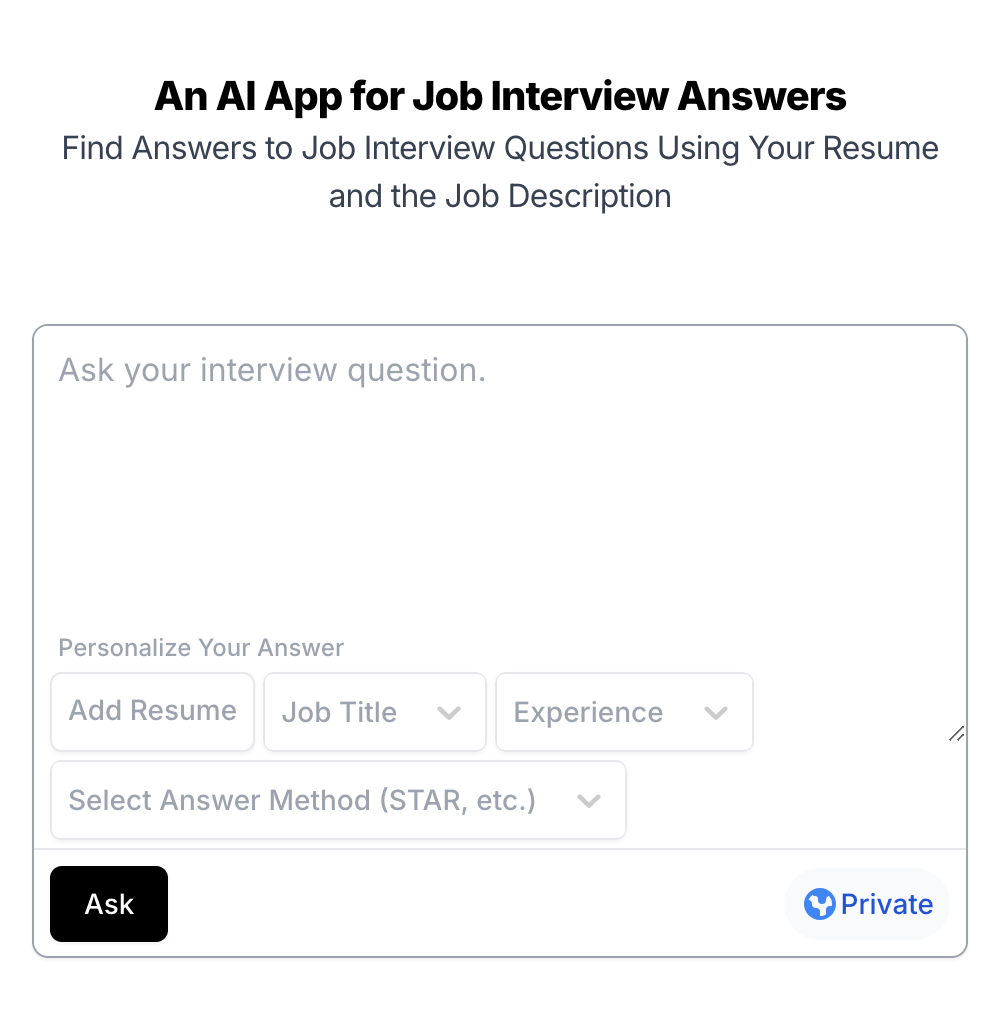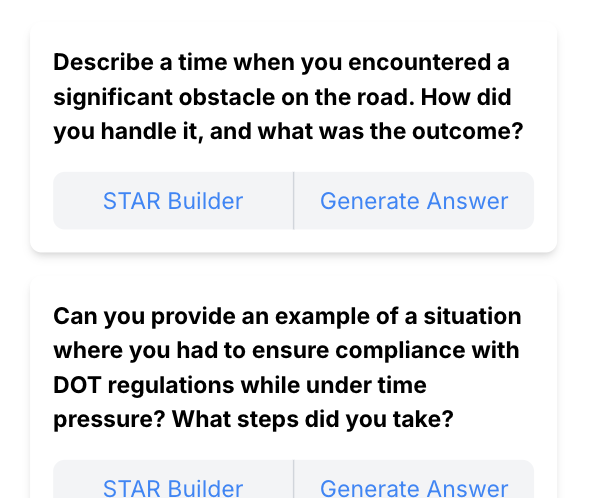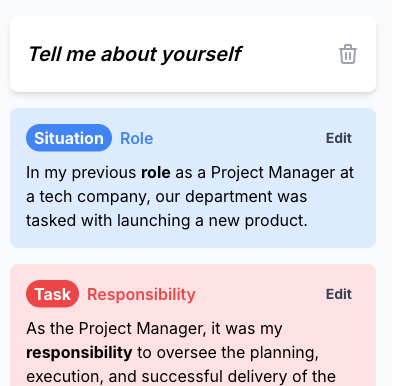
Stress Interview Questions: What You Need to Know
Fri Aug 23 2024•Author: InterviewPro AI
Table of Contents
- What Are They?
- Common Examples
- Answer Length
- What to Avoid Saying
- Possible Follow-Ups
- More Follow-Up Questions
- When They're Asked
- Who Asks Them
- Why They Matter
- How to Answer Well
- Answer Structure
What Are They?
Stress interview questions put you in tough situations to see how you handle pressure. Employers use them to check your ability to stay calm, think clearly, and solve problems under stress. They want to know how you'll react to challenging work situations.
5 Common Examples
- Why should we hire you over other candidates?
- Tell me about a time you failed at work.
- What's your biggest weakness?
- How would you handle a coworker who's not pulling their weight?
- Why do you have gaps in your employment history?
Answer Length
Keep your answer to about 1-2 minutes. This gives you enough time to address the question without rambling. Your response shows how you handle stress, so stay focused and concise.
What to Avoid Saying
Don't say these things when answering stress interview questions:
-
Don't get defensive Bad example: "That's an unfair question. Why are you asking me that?" Why it's bad: This shows you can't handle tough situations calmly.
-
Don't give up Bad example: "I don't know. I've never thought about that before." Why it's bad: This suggests you can't think on your feet.
-
Don't lie or make things up Bad example: "I've never failed at anything in my career." Why it's bad: This lacks credibility and shows a lack of self-awareness.
-
Don't blame others Bad example: "My last job was terrible because my boss was incompetent." Why it's bad: This shows a lack of accountability and professionalism.
-
Don't show lack of confidence Bad example: "I'm probably not the best candidate for this job." Why it's bad: This undermines your chances of getting hired.
-
Don't get too personal Bad example: "My biggest weakness is that I'm going through a messy divorce." Why it's bad: This is too much personal information for a job interview.
-
Don't avoid the question Bad example: "Can we talk about something else?" Why it's bad: This shows an inability to face challenges head-on.
Show that you can handle tough questions professionally and stay composed under pressure.
Possible Follow-Ups
After you answer, the interviewer might dig deeper. They could ask about:
-
Your feelings: They might want to know how the situation affected you emotionally. Example: "How did you feel when that happened?"
-
Your actions: They could ask what specific steps you took to address the issue. Example: "What did you do immediately after realizing the problem?"
-
The outcome: They might ask how things turned out. Example: "What was the end result of your actions?"
-
Lessons learned: They could ask what you took away from the experience. Example: "What did you learn from that situation?"
-
Future application: They might ask how you'd use this experience in the future. Example: "How would you apply what you learned to this role?"
5 More Follow-Up Questions
- "How would you handle a similar situation now?"
- "What would you do differently if you could go back?"
- "How did this experience change your approach to work?"
- "Can you give another example of a stressful situation you handled well?"
- "How do you typically prepare for high-pressure situations?"
When They're Asked
You might encounter stress questions at various stages:
-
Phone Screening: You might get mild stress questions to gauge your initial reactions. Example: "Why did you leave your last job?"
-
First Interview: This is when you're likely to face most stress questions, mixed with other types. Example: "Tell me about a time you had a conflict with a coworker."
-
Second or Final Interviews: You might get more intense scenarios here, often related to the specific role. Example: "How would you handle a major project failure that could cost the company millions?"
-
Panel Interviews: Different interviewers might ask stress questions from various angles. Example: "What's the biggest mistake you've made in your career?"
-
Assessment Centers: In group exercises, you might face stressful scenarios to solve. Example: "Your team has 30 minutes to come up with a solution to this complex problem."
These questions can pop up at any time, depending on the interviewer and the position you're applying for.
Who Asks Them
-
HR Professionals: Example: "How do you handle criticism?"
-
Hiring Managers: Example: "Describe a time when you had to deal with a difficult client."
-
Department Heads: Example: "How would you handle a team member who consistently misses deadlines?"
-
Potential Colleagues: Example: "How do you prioritize when everything seems urgent?"
-
Senior Executives: Example: "How would you turn around an underperforming department?"
-
External Recruiters: Example: "Why have you changed jobs so frequently?"
The person asking usually tailors questions to the job requirements and company culture.
Why They Matter
These questions reveal how you handle pressure, solve problems, and deal with unexpected challenges. They give employers insight into your decision-making process and ability to perform under stress. They use these questions to predict how you might handle real work situations.
How to Answer Well
- Stay calm and take a moment to gather your thoughts
- Be honest and authentic in your responses
- Provide specific examples when possible
- Focus on positive outcomes and lessons learned
- Show how you've grown from challenging experiences
Answer Structure
Use this framework to organize your thoughts:
- Acknowledge the question: Briefly restate the question to show you understand
- Provide context: Give background information if needed
- Describe your action: Explain what you did or would do
- Share the result: Discuss the outcome or potential outcome
- Reflect on lessons: Mention what you learned or how you'd apply this experience
Stress interview questions let you demonstrate your resilience and problem-solving skills. Use them as opportunities to show your value to the company. Your responses help employers gauge how you'll perform in challenging situations, so focus on showcasing your ability to handle stress effectively.
Can't find what you're looking for?
Try our AI-Powered Interview Preparation Tools
Prepare for your job interview with our AI tools. Tailored answers, custom questions, and STAR method responses.


